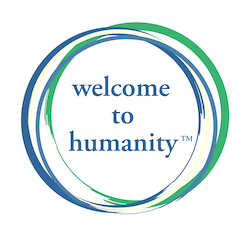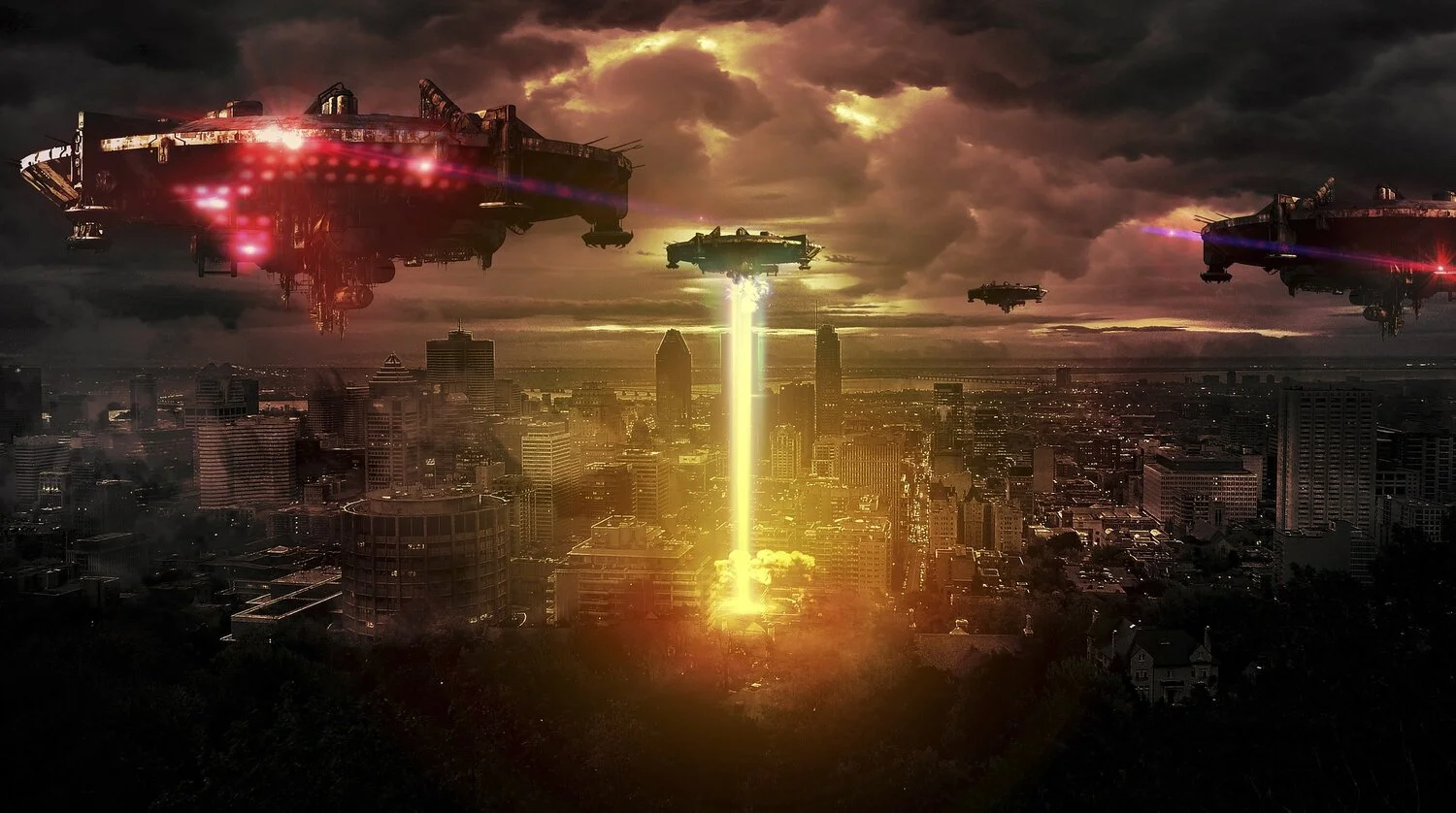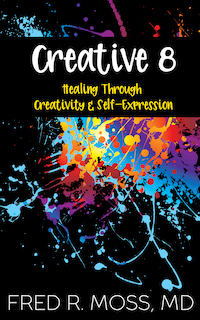Global Madness: What Must Happen To Unite?
This article was previously published in the Journal of the 2019 Conference For Global Transformation in May 2019 and was named as the prestigious Editor’s Choice.
ABSTRACT
Human beings appear hard-wired to notice differences between each other and then respond by separating and discriminating against each other. In this paper, we look at what could happen for us to unite together as one people on one planet by incorporating our differences to serve a greater good. This article references what my life is committed to in the future, directly taking these issues on, so that we all can take a giant step toward individual empowerment and global unity.
INTRODUCTION
As a physician with decades of experience working with the disenfranchised and mentally ill population, I sometimes find myself envious of their limitless lifestyle. While my work and personal life require me to stay within appropriate societal boundaries (or else face marginalization), their lives occasionally seem free and easy. They can be, and do, whatever they choose without concern of “falling off” of their mentally deranged label.
After all, if they act strange or the least bit unique, they never have to worry about losing their lofty role in society, i.e., “falling up” to normal. They have adhered to their diagnosed condition and, therefore, are starting off abnormal. They are comparatively untethered. Anything goes. Free to be and act. It is truly enviable.
COMPARING AND CONTRASTING ILLUSIONS
As a clinician, I have the power to diagnose and treat. The power is intoxicating. It is an illusion. The notion that I, as a physician, am relevant is supported by the general community and, therefore, my sense of self-worth is bolstered. Unlike my deranged brethren (those deemed mentally ill), they will likely be punished if they fall prey to their lofty illusions (e.g., “I could be president”). My illusions bring me a sense of self-worth and strength. However, their illusions might bring them a syringe full of powerful toxic chemicals, restraint and a short three-to-five-day vacation at an institution.
Ultimately, once they firmly agree that their illusions of power were just fleeting symptoms of their condition and could never actually materialize, then they will be able to leave the facility. Same illusions, different outcomes.
In the streets of all major cities worldwide, one cannot help but notice, and, maybe, even take exception to, the seemingly downtrodden population singing or dancing openly in broad daylight. Perhaps, they are even vocalizing their monologues (not far from the ones that we all experience, truth be told). Crazy, they must be, we are to believe.
We in the mainstream comfort ourselves knowing that we do not have a condition (as far as we know) that would allow for so much unbridled freedom—self-expression without societal limitations. While the marginalized may be ecstatic or distraught in their manners, I find myself impressed, and even jealous, of their sense of unruliness and wildness. When I walk by, hurriedly and warily, perhaps wearing a suit jacket and carrying my car and house keys close to me (for fear of having worldly possessions taken from my illusion of ownership), I notice this inner conflict. I waver between feeling sorrow for these folks and wishing that I could find the same latitude to simply say, be and act in the ways that naturally call to me. The disenfranchised seem to have the advantage of being free to be and act as a natural self-expression.
Is it the mainstream—us (dare I ask?)—that disenfranchises the outcasts? Do we set the outcasts aside? If so, what exactly is the baseline for the mainstream? Is it simply a matter of perspective? Or, is there an inherent distinction between us and them? When one sees oneself as an outcast, is a new mainstream immediately defined? From their perspective, does that person now see the mainstream as a group of outcasts? Is being an outcast simply an arbitrary misnomer? Is there such thing as a mainstream? In the end, are these two groups really that different?
Maybe the answers lie within what drives our self-expression. In agreeing to be part of the mainstream, what true freedoms must one relinquish? How much personal self-expression is sacrificed? Within the definition of mainstream, clear rules must be followed to stay a member or else risk being unceremoniously tossed to the state of outcast. Outcasts can be reinstated if they can recover the mainstream’s illusions.
In a hypothetical world of outcasts, these definitions simply do not exist. Rules seem to be set by being fully self-expressed without care or concern of following any protocol. However, once there are members of an outcast group, has not a new mainstream emerged within their ranks?
One thing seems rather clear here. The inescapable outcome is the creation of an undeniable “us vs. them” mentality. An alien is defined, illegal or not. This seems inevitable, and, maybe, even necessary, a hard wire for humanity. Every society, or subset of society that I know of, evokes this “we and they” framework, intentionally or inadvertently, in an effort to accurately describe themselves as different from one another. Warring factions, or at least those that firmly disagree on what is normal, naturally arise. Thus, working together as one unit, to achieve a goal or outcome, with these separate ideologies or values, naturally becomes immediately and profoundly challenging.
A “SOLUTION” TO THE DILEMMA?
So, I ponder: Given that this setup appears to be inherent in human nature, what sociological system could conceivably be employed to allow us to accept all our differences and work together while, at the same time, using the specific variances of our strengths to our benefit and not seeing our differences as a hindrance that needs to be overcome? It would need to be larger than the threats that we are now facing. Climate change is clearly not “loud” enough for us to transform our differences into strengths and unify humanity.
Here is what I have come up with as a far-fetched possibility, I hope, to suit those needs: an urgent global threat from a nonhuman entity. We can use the “us vs. them” mentality effectively, and creatively, to unite the planetary response required to sustain our earthly existence.
What might that look like? As an example, what if we knew that we had one year from today to prepare for the invasion of Martians intent on destroying us all (really!) and a global effort would be required to address it effectively? Would that be enough impetus—enough of a calling—to overlook our apparent differences and martial the unique strengths and qualifications of different factions and eliminate the imminent destruction of our planet Earth?
I would hope so, but, unfortunately, I am not certain. Given that the “us vs. them” is hard-wired into our humanness, what seems promising in this scenario is that we still maintain our disenfranchising tendencies and outcast creations to address the destruction of our world. Our new outcasts or aliens would now be defined as those marauding Mars dwellers. A new baseline emerges of “human vs. non-human,” and, perhaps, our human variabilities would not be alienating enough to splinter us. The threat of a Martian invasion, therefore, could draw us together as one global team. One can only hope!
I truly pity the Martians who would have to take on a unified and organized group of 7.6 billion functional human beings called on to perform at an urgent level. As a reorganized and stratified true force to be reckoned with, we would be cooperatively and effectively intent to bring down the Martians’ ill-fated plan to annihilate us. The outcome would likely amount to a truly bad day for these unfortunate and misled warriors from Mars.
As people, we are, of course, much more similar than different on a global scale. When we describe ourselves as factions, whether it be nationalities, races or ideologies of some kind, we actually focus more on what it means not to belong, rather than to belong. This is no less true when we speak of the mentally ill. We do not have a workable definition of non mental illness. Or, said another way, what it is to be normal. Belonging to the normal group is based on specific, arbitrary and culturally determined parameters. As what is abnormal in one contextual setting is seen as grossly abnormal in another. From this perspective, mental illness can easily be seen as simply a conversation. It is subject to transformation rather instantaneously, and, in fact, has no global meaning.
WELCOME TO HUMANITY
Welcome to Humanity™ has become my professional brand and clinical identity. As such, I am of the notion that all people are whole, complete and perfect. In fact, there is not a circumstance, behavior, discomfort or experience of any type, including confusion, pain, anger and hopelessness, for which simply saying, "welcome to humanity" is not a compassionate, resetting and accurate response for sending one in the direction of healing or comfort. Comfort and health are not synonyms by any stretch, and discomfort in its many manifestations is simply an obvious and truly inherent essential component of the daily human experience. Reorganizing, reconfiguring and transforming the conversation about mental illness is the mission, vision and purpose of Welcome to Humanity™. Those who are ready to look at the human experience from a new empowering perspective, inquiring together into all the many facets of what it means to be human, are invited to join us in this journey.
GLOBAL MADNESS
I have also assembled a group of interested and extremely dedicated individuals to create a breakthrough new documentary series that explores the global state of mental health with a mission to discover new ways of talking about, diagnosing and treating mental illness through authentic and inspirational storytelling. Our goal is to create an entirely new paradigm, where mental health is discussed without stigma and fostered without harm.
Through “Global Madness,” we will explore global locations (Israel, Australia, Norway, China, Zimbabwe and Finland for starters) and their relevant mental health facilities. We will learn from impacted patients on the frontlines of mental health, supported by their caregivers, doctors, families and friends. We will meet mental health physicians, change-makers and innovators who are employing miraculous management techniques and using different forms of creativity and communication to heal. We will also facilitate transformational conversations that will shift the paradigm of mental illness.
These are difficult times, and, perhaps, even as Dickens suggested, the best and worst of times to be alive. We have the opportunity to redefine and transform what it means to be human. My Impossible Promise is that, by 2030, each and every person will know that their voice can be heard and that who they are and what they do matters. I am committed to continuing to explore this and have created a network of conversations that allows me to move in this direction, powerfully and intentionally, to make a difference with how the outcast and disenfranchised are seen and heard. I am also committed to making a difference in how the outcast and disenfranchised aspects of each of us can be embraced and reset, effectively and compassionately, so that our lives and purposes for being here can be discovered. Welcome to this extraordinary life that we all share.
Welcome to Humanity.
Want to learn more the Creative 8 methodology that hundreds of my patients have used to overcome their “diagnosis” and live more full, creative, and self-expressed lives? Grab your copy below. It’s completely free and you can begin implement it today— in less time than it takes your Keurig to brew a cup of coffee. ;)




